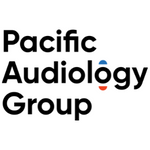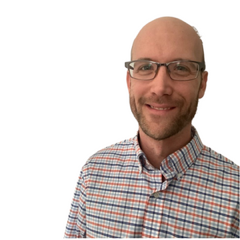The landscape of audiology is changing and changing quickly, leading to a number of challenges in our profession. At the root of these challenges is a lack of identity we have as hearing health care professionals. This lack of identity can be attributed to the poor marketing of our profession. In the past, our marketing has focused heavily on products – primarily conventional hearing aids and not enough on how our unique skillset can address the social impairment and participation restrictions associated with hearing loss. Hearing loss is no longer considered a “natural part of ageing.” Research shows the considerable adverse effects of hearing loss on mental and physical health. As audiologists, we are well-positioned as experts in our field and have the necessary skills in rehabilitation and treatment to help alleviate the negative impact of communication disorders on the health of hard-of-hearing individuals.
Our lack of visibility to the public as a rehab profession has resulted in hyperfocus on the manufacturer’s conventional hearing aid technology as a hearing loss treatment. Additionally, it has contributed heavily to the idea that audiology is only a diagnostic profession. These two ways of thinking regarding our profession, coupled with the bundling of products with services in private practice, have created an additional challenge within our profession: the inability to be adequately reimbursed for our services. For example, audiologists in most parts of Canada cannot currently be reimbursed for a needs assessment of hearing loss or communication for the hearing impaired individual, which is an integral part of the assessment to determine the appropriate treatment. Another example is that audiologists, many of whom are experts in vestibular treatment, can not bill for vestibular rehabilitation either to provincial healthcare plans nor to private extended health insurance plans, while physiotherapists may do so freely. It is evident that the current reimbursement scheme for audiologists is inadequate and can easily result in harmful outcomes on the communication ability of an individual. These poor outcomes can lead to mismanaged hearing loss, which can significantly affect the everyday quality of life of an individual, causing loneliness, isolation, dependence, frustration, and communication disorders. Mismanaged hearing loss can also result in impaired emotional, behavioural and cognitive behaviours.
Admittedly, the above paragraph paints a somewhat bleak picture. However, even though these challenges seem like they may be challenging to overcome, audiologists are positioned well and can persevere and may even thrive. Below I will discuss ways audiologists can address these challenges, display the full scope of our expertise and create better visibility for our profession.
1. Move outside the booth
The field of interventional audiology involves taking audiologists out of the clinic to where patients need them. It is a model showing many benefits in elevating the profession of audiology and improving outcomes. In going to where audiology is needed, such as a geriatric outpatient clinic, audiologists can provide the necessary intervention based on the individual’s particular needs in that situation.
2. Be knowledgeable on all technologies
The hearing loss market is currently flooded with both good and bad technologies, and consumers are asking more and more about the benefits and limitations of these devices and how they may alleviate the impact of their particular communication disorder, whether it be difficulty hearing in noise or for a specific situation. Audiologists, through their training, should be considered experts in all hearing loss treatments. It is to the benefit of our profession and our patients to be knowledgeable of all technologies to help consumers make an informed decision regarding their hearing loss treatment.
3. Practice at the top of your scope
I firmly believe that all audiologists, at one time, entered the profession to help people hear. However, with the proliferation of hearing aids and interference from the hearing aid industry, we have somewhat lost our way in this regard. The truth is, hearing aids are only one tool at our disposal to help treat communication disorders. In order to ensure there is a future for audiology, audiologists have to return to practice at the top of their license. This means providing high-quality hearing healthcare, including aural rehabilitation, in a patient-centred manner using evidence-based practice to help guide and customize the treatment of an individual’s communication disorder.
4. Be an advocate
As audiologists, we need to rebrand our profession to make it more visible to the public and highlight that we are the experts in hearing loss. Audiologists have a broad area of expertise in communication disorders, and we must act to strengthen the public’s recognition of the link between audiologists, hearing and healthcare. A critical way audiologists could accomplish this is by advocating for individuals with hearing loss. By working with our professional associations and reaching out to the appropriate policymakers, audiologists can help to shed light on the essential issues affecting both our profession and the individuals we attempt to help every day.
Share Blog!





